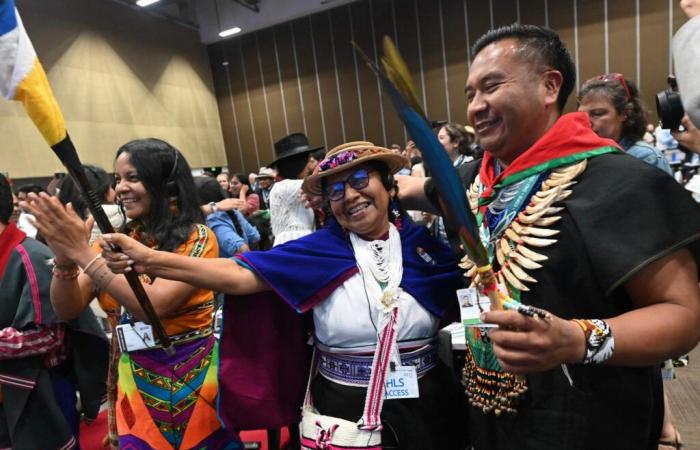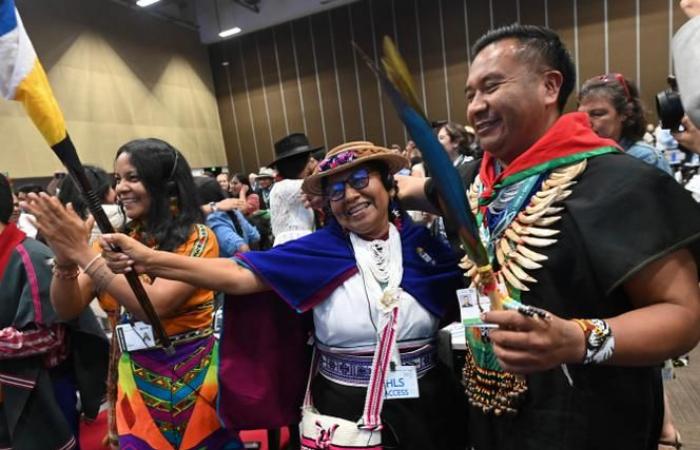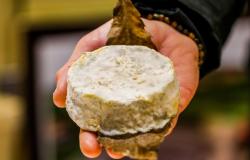The indigenous peoples of the world, who demand recognition of their role as guardians of nature, obtained Friday 1is November a reinforced status in the United Nations negotiations on biodiversity, by a decision adopted in Cali.
The countries gathered at the 16e Conference of the Parties to the United Nations Convention on Biological Diversity (COP16), in Colombia, adopted in plenary the creation of a permanent group – a “subsidiary body” – intended to ensure the representation of indigenous peoples and local communities within the United Nations Convention on Biological Diversity (CBD).
Read also | Article reserved for our subscribers Wild vertebrate populations have declined by 73% in fifty years
Read later
Flagship breakthrough
Representatives of these peoples increased their cheers and songs of joy as several texts on this subject were adopted. “This is an unprecedented moment in the history of multilateral environmental agreements”rejoiced Camila Romero, a representative of the Quechua peoples of Chile. The 196 member countries of the CBD “recognized the continuing need for our full and effective participation, our knowledge and innovations, our technology and our traditional practices”.
This is the first notable progress of COP16, which opened in Cali on October 21 and continued into the night from Friday to Saturday November 2, due to a standoff over the financing of efforts that humanity must devote to stop destroying nature.
Russia and Indonesia blocked the adoption of this highly anticipated text on Thursday at the end of the summit, which is being held in one of the nine countries covered by the Amazon.
Read also | Article reserved for our subscribers Biodiversity: States are not on track to effectively protect 30% of lands and seas by 2030
Read later
“Guardians of Nature”
For the representative of the Central African Republic, “Indigenous peoples will be the first to make peace with nature”objective of the Kunming-Montreal agreement adopted at COP15 in 2022.
On October 26, people from Brazil, Colombia, Peru, Bolivia, Ecuador, Venezuela, Guyana, French Guiana and Suriname launched in Cali the “G9 of the indigenous Amazon”in order to have “a unified voice to influence global decisions”.
Indigenous peoples are “the guardians of nature”, “on the front lines of the biodiversity crisis” and their inclusion can “generate a more equitable dialogue” on the subject, declared Monday to Agence France-Presse the president of COP16, Susana Muhamad, Colombian Minister of the Environment.
Read also | Article reserved for our subscribers COP16: Colombia, which advocates “peace with nature”, is the deadliest country for environmental defenders
Read later







